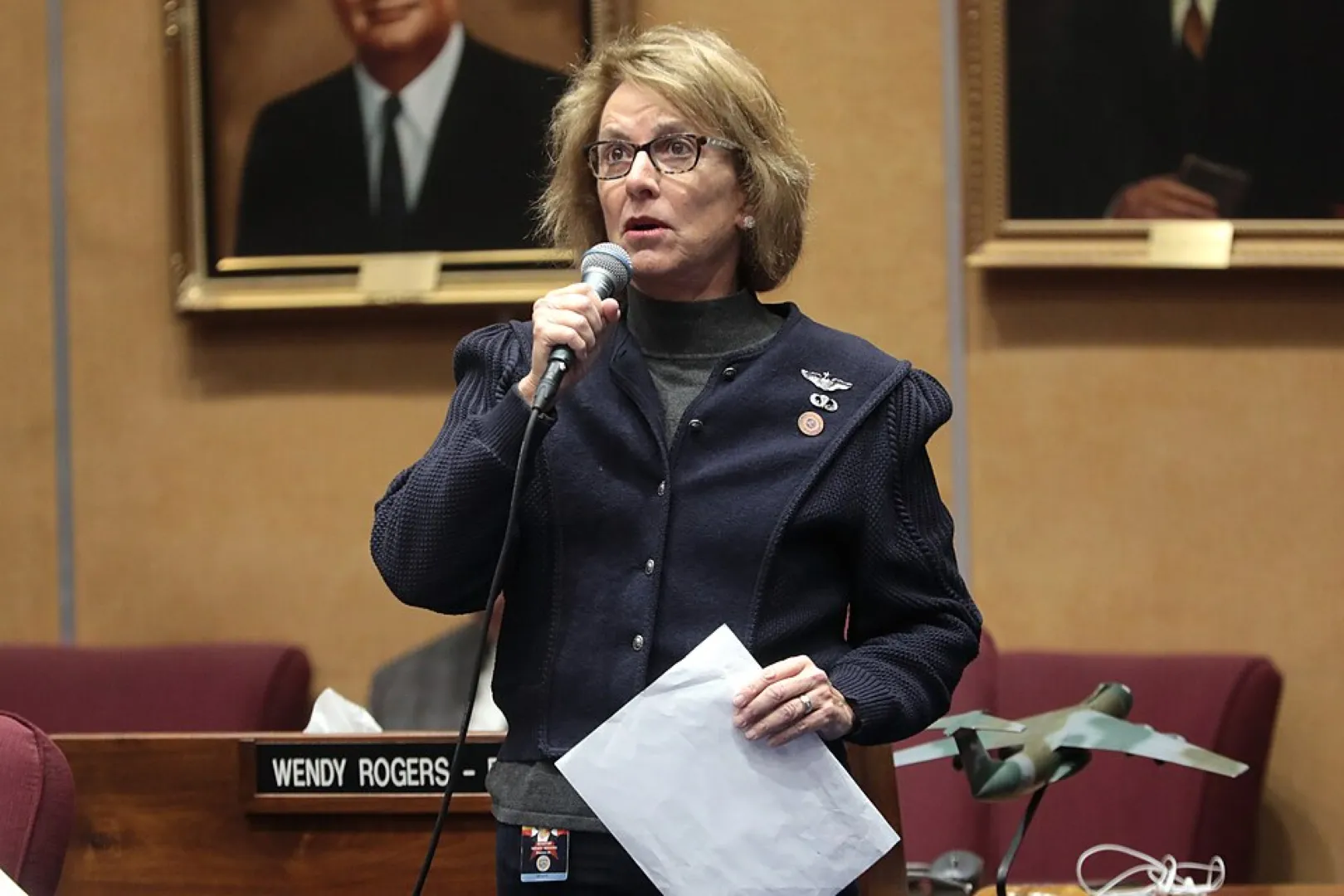Arizona has officially criminalized stolen valor.
After months of legislative wrangling, Governor Katie Hobbs signed Senate Bill 1424—the Master Sergeant Orlando Dona Stolen Valor Act—into law, making it a misdemeanor offense in Arizona to fraudulently claim military service, rank, or awards for personal or political gain.
The law is a bipartisan victory—but it almost didn’t happen.
Wendy Rogers’ Stolen Valor Debacle
Let’s be clear: this law passed in spite of Senator Wendy Rogers, not because of her. While Arizona veterans and advocates like Anthony Anderson and Retired Master Sergeant Jack Dona were working tirelessly to get this legislation through, Rogers did what she does best—torpedo serious efforts and spin false narratives.
Instead of allowing a clean vote, Rogers blocked the original version of the bill in her committee, demanding amendments and claiming she was “championing changes.” But those who were actually in the trenches—veterans and lawmakers alike—called her out.
“She’s stealing valor from the stolen valor bill,” Anderson said bluntly. Jack Dona echoed the frustration: “You want to talk about why people are fed up with politics and fed up with politicians?”
In a year where Rogers is already under scrutiny for her history of extremist rhetoric and dubious claims, her attempt to derail legislation protecting the sanctity of military service may be her most tone-deaf move yet.
The optics couldn’t be worse. Here we have a sitting Arizona State Senator—a retired Air Force officer—blocking a bill designed to punish people who lie about serving. Whether she misunderstood the moment or prioritized personal power plays over principle, the result was the same: unnecessary delays and veteran outrage.
This wasn’t just a policy disagreement. It was a betrayal of trust, and Rogers ought to answer for it.
Rep. Walt Blackman and Sen. Shawnna Bolick Get It Done
Fortunately for Arizona veterans, leadership emerged elsewhere.
Representative Walt Blackman, a U.S. Army combat veteran and tireless advocate, authored the original bill and carried it through the House. “You don’t get to wear the uniform if you didn’t earn it, and you sure don’t get to profit off of it,” he said.
Blackman’s no-nonsense approach grounded the effort in moral clarity. He reminded lawmakers that stolen valor isn’t just a lie—it’s a slap in the face to everyone who’s ever sacrificed for this country.
When Rogers derailed the original proposal, State Senator Shawnna Bolick stepped in with a striker amendment, resurrecting the legislation and pushing it through the Senate. It was Bolick’s strategic maneuvering that ensured the bill got the hearing—and the vote—it deserved.
Let’s give credit where it’s due. Blackman provided the vision and moral authority. Bolick provided the legislative finesse. And in the end, veterans got the protection they deserve.
The Law: What It Does
The Master Sergeant Orlando Dona Stolen Valor Act criminalizes the false claim of military service or honors when used to gain employment, access public benefits, or build political credibility. Named after a highly decorated veteran and integrity advocate, the law fills crucial gaps left by federal statute.
Violators face misdemeanor charges, with fines or jail time depending on the offense. But more importantly, the law signals that Arizona will not tolerate opportunists exploiting military honor.
This was never about politics—it was about principle. As Blackman put it, “This legislation is not about me. It’s about every veteran who earned their place, their rank, and their recognition.”
Wendy Rogers’ Miscalculation
Rogers’ attempt to claim credit after obstructing the bill wasn’t just galling—it was strategic gaslighting.
Her office’s press release suggested she “championed” the legislation’s success. But according to those actually involved, she wasn’t even in the room when it mattered. Anderson and Dona’s message was clear: Rogers was a barrier, not a bridge.
In the age of accountability and transparency, you can’t slap your name on a win you tried to kill. That’s not public service. That’s public relations—and bad PR at that.
Arizona’s Next Chapter
With the Stolen Valor Act now law, Arizona sends a clear message: real service matters. Fraud will not be tolerated, especially not by those who seek political office under false pretenses.
It’s a warning shot to any candidate tempted to exaggerate their resume, a win for veteran integrity, and a hard-earned victory for those who fought—not just on the battlefield, but at the Capitol.
Let the record show: Walt Blackman and Shawnna Bolick rose to the occasion. Wendy Rogers did not.
And Arizona voters? They’re watching.
